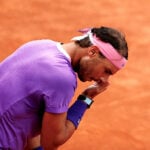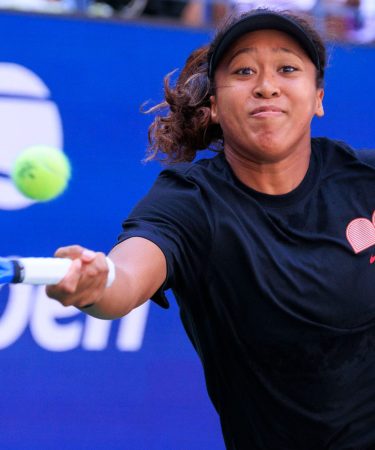Unprecedented and intriguing: Naomi Osaka’s latest campaign for players’ rights and mental wellbeing
It was another announcement that shocked the tennis world, courtesy of the world No 2 – but why does Naomi Osaka feel the need to boycott the media?
 ZM / Panoramic
ZM / Panoramic
The announcement by Naomi Osaka that she will not be speaking to the media at Roland-Garros this year has raised plenty of eyebrows.
There seems to be little precedent for this kind of blanket embargo.
Liverpool FC have refused to speak to The Sun in the UK following continuing outrage over the newspaper’s inaccurate coverage of the Hillsborough stadium disaster, in which 96 fans were killed.
Sir Alex Ferguson, the former manager of Manchester United, wouldn’t speak to the BBC for over seven years after objecting to their documentary coverage of his son Jason.
Players in all sports often opt to step away from social media during a tournament so they don’t have to cope with the incessant messaging and discussion, and focus solely on their game.
But an individual athlete instigating a ban against all media is very, very unusual.
Naomi Osaka has emphasised that she has taken this particular step to protect her mental health.
“I’ve often felt that people have no regard for athletes’ mental health and this rings very true whenever I see a press conference or partake in one,” she wrote on social media. “We’re often sat there and asked questions that we’ve been asked multiple times before or asked questions that bring doubt into our minds and I’m just not going to subject myself to people that doubt me.”
Naomi Osaka is not the first player to raise concerns about media questioning
It’s an interesting point. Johanna Konta has also raised similar concerns previously.
“I don’t think you need to pick on me in a harsh way,” the British No 1 told a Wimbledon press conference in 2019 after a question asking whether she could have done better on the big points in her quarter-final defeat to Barbora Strycova. “I think I’m very open with you guys. I say how I feel out there…. I still believe in the tennis that I play. I still believe in the way I competed.”
She then accused the journalist of “being disrespectful” and “patronising” her.
There is no doubt that having to answer questions about a poor performance or a painful defeat could be troubling.
But ultimately it’s a few minutes out of their day – can it really have so deleterious an effect on a player’s mental health, even if the questions are perceived to be negative? Surely the constant wave of noise on social media would be a bigger problem, and surely all of this can be counteracted by the hours and hours of preparation top players do with their coaches and sports psychologists?
Naomi Osaka’s mention of not wanting to hear questions that bring “doubt” into her mind is interesting. It is not a journalist’s job to bolster a player’s self-confidence or improve their mindset; it is a journalist’s job to ask questions on behalf of the public. It would be worrying if players begin to pick and choose which journalists they want to take questions from, and what kind of questions they want to answer.
The other intriguing reference in Osaka’s statement is the indication that she gets bored with some lines of questioning. That is perhaps not surprising – talking about her thoughts on her match every other day for a fortnight during a Slam might be a bit dull. But repetitiveness is not in itself a genuine reason for a player to object to speaking to the press.
Naomi Osaka also gives a nod to one of the reasons players usually go through press uncomplainingly – because if they don’t, they will be fined: “If the organisations think that they can just keep saying, ‘Do press or you’re gonna be fined’ and continue to ignore the mental health of the athletes that are the centrepiece of their cooperation then I just gotta laugh. Anyways, I hope the considerable amount that I get fined for this will go towards a mental health charity.”
As the No 2 ranked player and the highest-earning female athlete in the world, it is evident that the mandatory fine for non-attendance at a press conference is not a concern of hers, but it might be to plenty of other players.
It’s also worth noting, though, that Osaka’s position on the tedium and trial of press conferences isn’t necessarily one held universally. Roger Federer, for example, has said before how much he enjoys his media duties: “I know you guys have a job to do and I find it quite fun. Actually, I think some of you are quite funny.”
What does academic research say about professional athletes and the stress of being in the public eye
So perhaps it is worth taking a broader view here. Academic research has suggested that professional athletes do have increased stress due to being in the public eye and the expectation of their fans and followers on social media. Not only that, but although playing sport is widely known to be good for mental wellbeing, playing it at the very highest level may create mental health problems – such as anxiety and depression, which could lead to injury and burnout.
It is also interesting to note that studies have found that female athletes are more likely to take action to protect themselves from stress and anxiety than their male counterparts – and individual athletes are more likely to take action than those in a team sport.
There is also some research that suggests that female athletes are subjected to a different kind of scrutiny than their male counterparts – their marital status, their appearance, their weight, their muscle mass, their emotional state are all more likely to be discussed by the media. More than that, women in general – not just in sport – are expected to be nice and polite even in the face of rude comments or questions in a way that men are not; it is a social expectation placed on women. A woman who does not want to smile, chat, pose for photos is labelled “difficult”. With that in mind, any female player might feel additional pressure in press conferences.
Naomi Osaka has already made it clear with her activism for social justice that she is prepared to step up and speak out if she feels something is unfair or not right. Although this is not the most important topic on which she has campaigned, gathering more rights for sportspeople in the face of governing bodies and tournaments has been on the agenda over the last 12 months – it is essentially what Novak Djokovic intended to happen with the Professional Tennis Players’ Association.
This latest stance from Naomi Osaka seems to be very much in the same vein – hitting out at traditional expectations enforced on players who are, after all, the essential ingredient to successful tournaments and successful media, and believe they deserve a greater degree of protection and respect. Whether reporters ask interesting questions at the daily press conference is not really the point; the point is that the players are obliged to answer them, no matter how rude, and no matter how they are feeling within themselves. Osaka is highlighting that this could be considered unreasonable.
When she donned her now-iconic face masks during the 2020 US Open, Osaka refused to make her own message explicit, telling a reporter instead: “What was the message that you got was more the question. I feel like the point is to make people start talking.”
They’re certainly talking again now.












